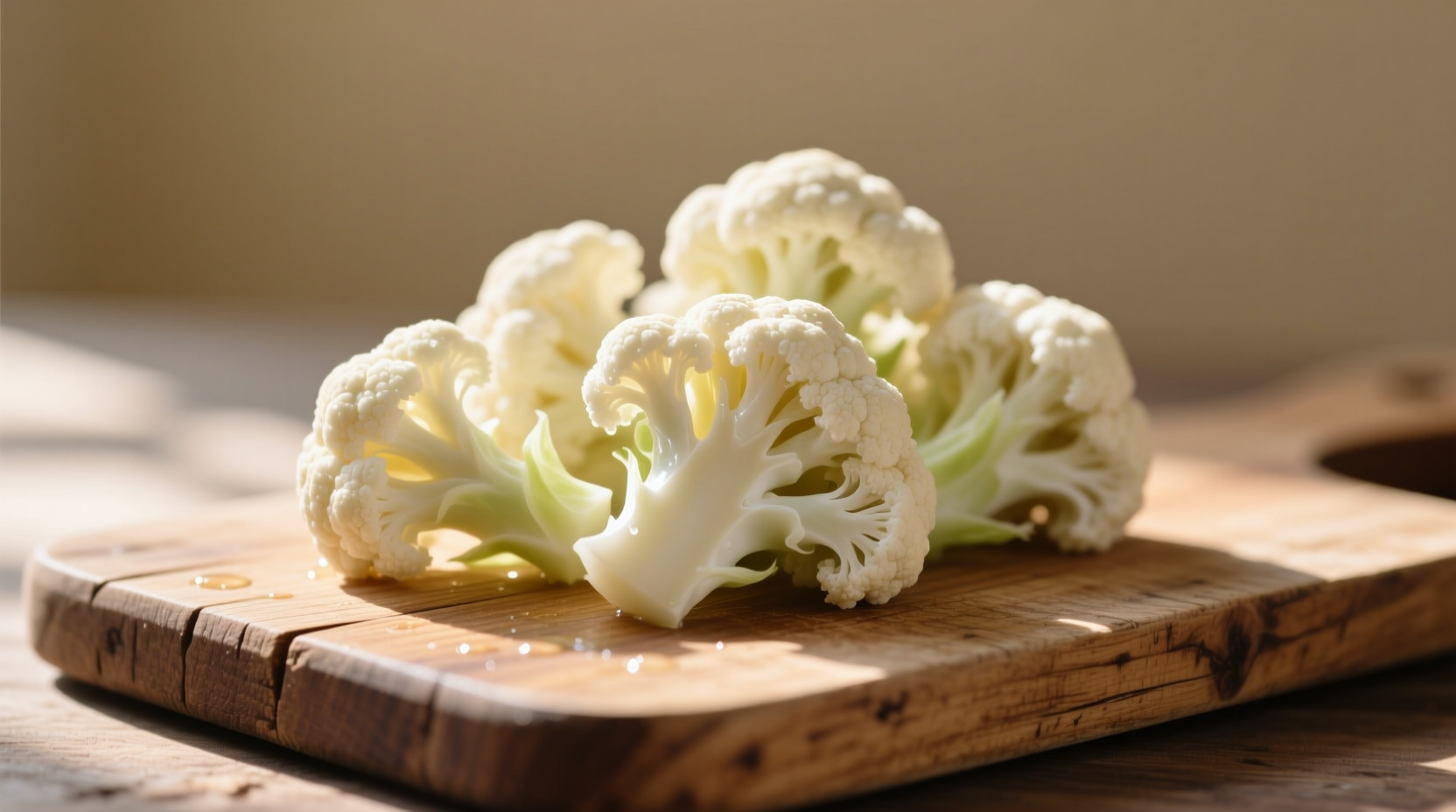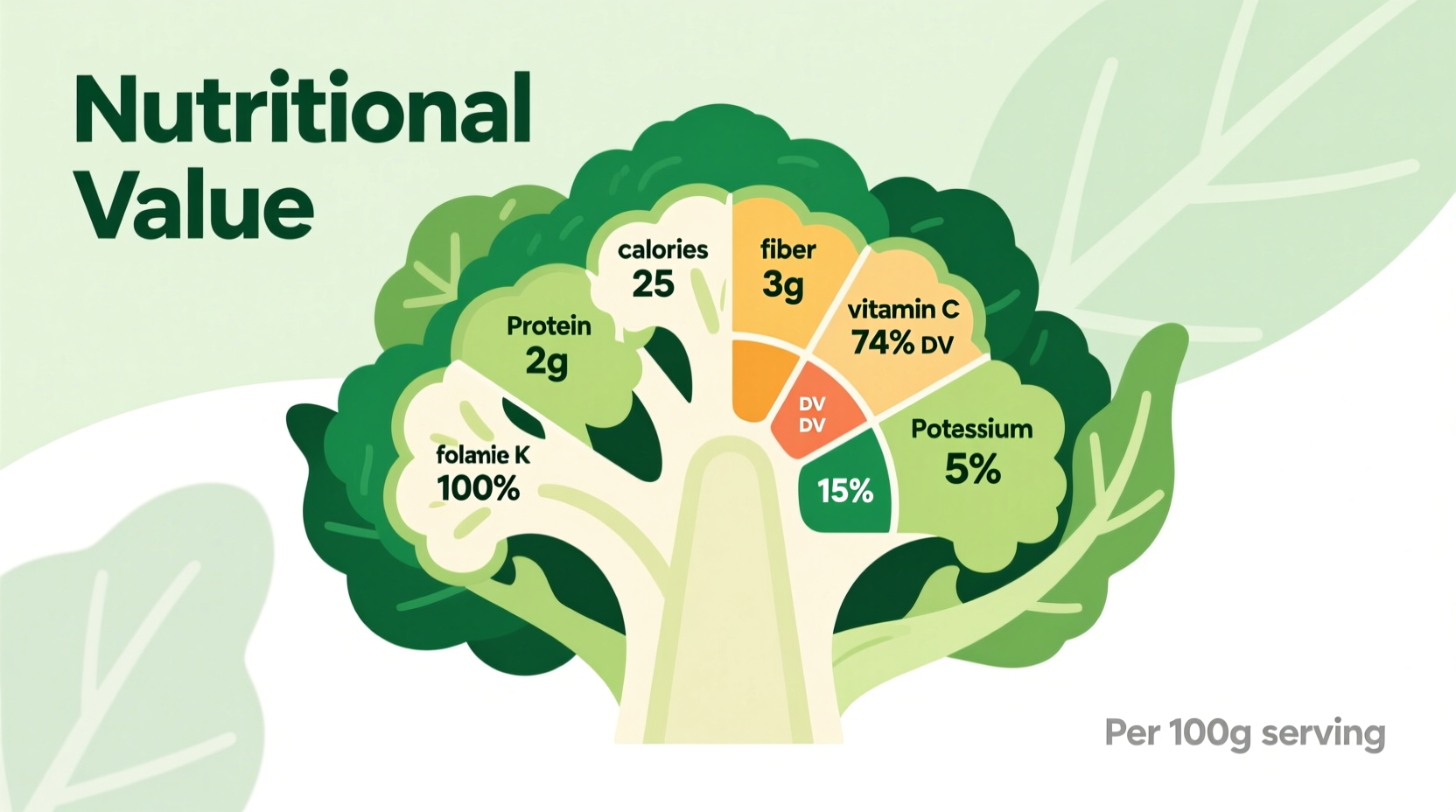Why Cauliflower Deserves a Spot on Your Plate
When evaluating cauliflower nutritional value, most people focus solely on calories. But this versatile vegetable offers far more than just low-calorie volume. As a member of the cruciferous family alongside broccoli and kale, cauliflower contains unique compounds that contribute to long-term health. Recent research from the USDA FoodData Central confirms that a single cup (100g) of raw cauliflower provides substantial nutrition without overwhelming your daily calorie budget.
Complete Cauliflower Nutrition Profile
Understanding the detailed nutritional value of cauliflower helps you maximize its benefits in your diet. The following table shows key nutrients per 100g serving according to the USDA National Nutrient Database:
| Nutrient | Amount | % Daily Value |
|---|---|---|
| Calories | 25 kcal | 1% |
| Protein | 1.92 g | 4% |
| Dietary Fiber | 2.0 g | 7% |
| Vitamin C | 48.2 mg | 77% |
| Vitamin K | 15.5 μg | 20% |
| Folate (B9) | 57 μg | 14% |
| Potassium | 299 mg | 9% |
How Cauliflower Compares to Other Cruciferous Vegetables
When considering cauliflower nutrition facts compared to broccoli, both vegetables offer impressive benefits but with different nutritional strengths. According to research published in the Journal of Agricultural and Food Chemistry, cauliflower contains higher levels of certain B vitamins, while broccoli provides more vitamin A and calcium. This comparison helps you make informed choices based on your specific nutritional goals:
| Nutrient | Cauliflower (100g) | Broccoli (100g) |
|---|---|---|
| Calories | 25 | 34 |
| Vitamin C | 48.2 mg | 89.2 mg |
| Vitamin K | 15.5 μg | 101.6 μg |
| Folate | 57 μg | 63 μg |
| Glucosinolates | High in glucoraphanin | High in glucobrassicin |
Practical Applications of Cauliflower Nutrition

Knowing the cauliflower nutritional value per 100g helps you incorporate it strategically into various dietary patterns. For those following low-carb diets, cauliflower serves as an excellent substitute for higher-carbohydrate foods. When transformed into cauliflower rice nutrition facts become particularly relevant - one cup contains only 25 calories compared to 200 calories in white rice.
Health Benefits Backed by Research
The health benefits of cauliflower nutrition extend beyond basic vitamin provision. Studies from the American Journal of Clinical Nutrition highlight several key advantages:
- Cellular protection: Glucosinolates break down into compounds like sulforaphane that activate protective enzymes
- Digestive support: The 2g of fiber per 100g promotes healthy gut bacteria and regularity
- Bone health: Vitamin K content supports calcium absorption and bone mineralization
- Cardiovascular benefits: Potassium helps maintain healthy blood pressure levels
When Cauliflower Might Not Be Your Best Choice
While the nutritional value of cauliflower raw vs cooked generally remains strong, certain contexts require consideration. Individuals with thyroid conditions should be aware that cruciferous vegetables contain goitrogens, which may interfere with thyroid function when consumed in extremely large quantities. According to the National Institutes of Health, cooking reduces these compounds significantly. Those following low-FODMAP diets for IBS management should limit cauliflower portions, as it contains mannitol which can trigger symptoms in sensitive individuals.
Maximizing Cauliflower's Nutritional Value
To get the most from cauliflower nutrition facts and benefits, preparation matters. Research from the Journal of the Science of Food and Agriculture shows that:
- Steaming preserves more vitamin C than boiling
- Chopping and waiting 40 minutes before cooking increases sulforaphane availability
- Pairing with black pepper enhances absorption of fat-soluble compounds
- Mild cooking preserves nutrients better than prolonged high-heat methods
Adding Cauliflower to Your Daily Routine
Understanding the complete cauliflower nutritional profile makes it easier to incorporate this vegetable into your meals. Try these practical approaches:
- Replace half your mashed potatoes with cauliflower for added nutrients
- Create a nutrient-dense pizza crust using riced cauliflower
- Add raw florets to salads for crunch and vitamin C
- Blend steamed cauliflower into soups for creaminess without dairy











 浙公网安备
33010002000092号
浙公网安备
33010002000092号 浙B2-20120091-4
浙B2-20120091-4